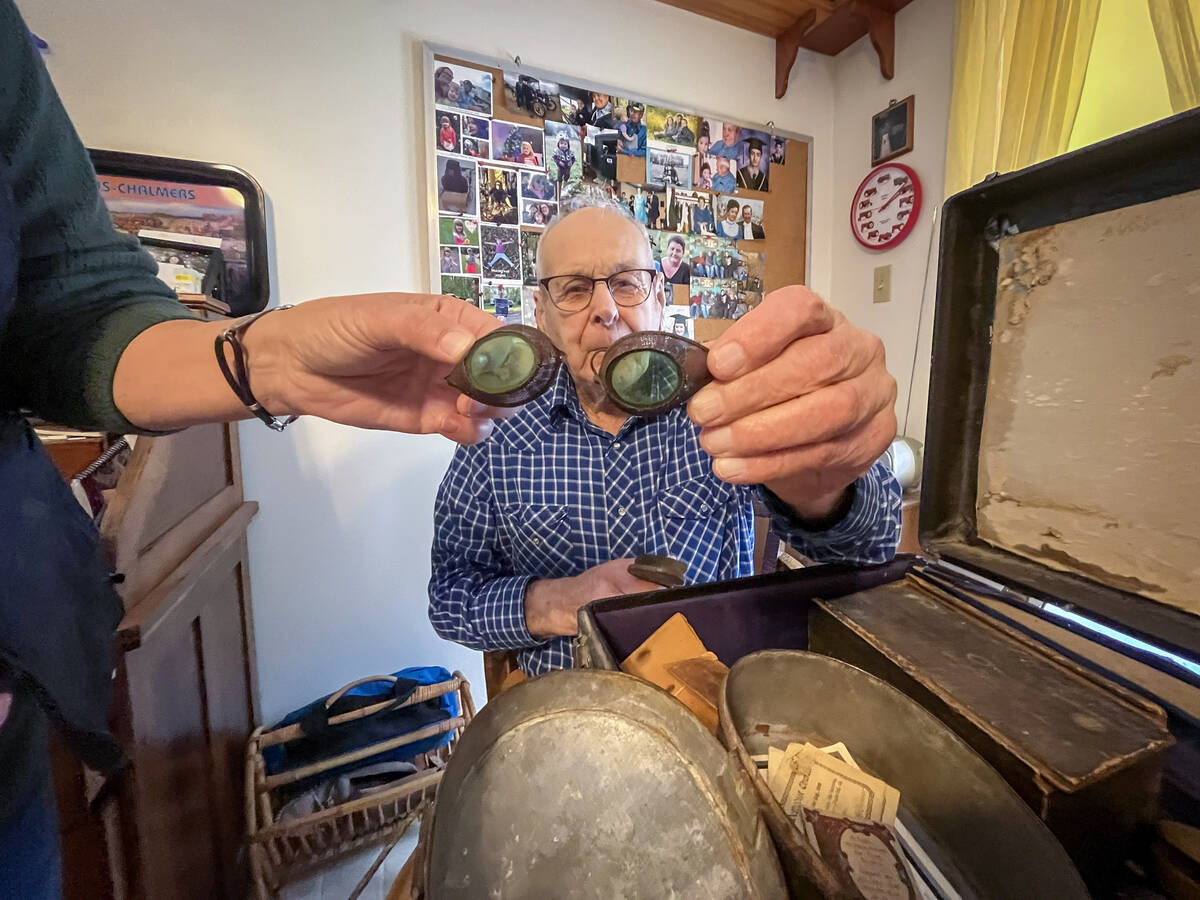Everyone knows what “acquisition” means. A neighbour’s farm comes up for sale, you pay the price, you own it. It’s yours. But what about “mergers.” In most business sectors, the two terms — “mergers and acquisitions”— always go hand in hand. Are mergers even happening in farming?
The answer from Kyle Lopez, senior BDO tax manager at Portage la Prairie, is only “sometimes.” Yet mergers do look set to start happening more often, Lopez says, even if they happen with a twist that turns them, basically, into acquisitions.
So if the strategic outcome is still the same — an acquisition — why would anyone go the merger route?
Read Also

The why and how of preserving farm family history
Part two of a series explaining why and how to preserve farm family history.
Because in an incorporated agriculture, Lopez says, if you want to buy the land, you may have to buy the corporation that owns it.
“For example, if you want to buy the neighbour’s land, the only way you may be able to buy it is if you buy their farming company — let’s call it Neighbour Co. — because from an income tax perspective, it’s better for the seller to sell shares of a farming company than it is for their corporation to sell the land to another company,” Lopez says.
Where does the merger come in? After all, the buyer is still buying something, it’s just a company instead of the land.
The merger, Lopez explains, happens after the purchase. Here’s the scenario. The purchaser has to buy the neighbour’s corporation in order to get the land, which may often be the only asset in the company. So the buyer buys the shares even though they don’t actually need the second company because they’ve already got their own, which is why they do a merger to get the land into their original corporation.
The reason is usually related to tax planning, Lopez says. With a merger (or amalgamation) of two companies there are rules that allow farm owners to increase the cost base of the land that was previously held in the corporation they just purchased.
“For example, a farming company buys Neighbour Co. for $1 million, with that value being derived from the market value of the land it holds,” Lopez says. “When the neighbour purchased the land, it was only worth $50,000. So, because you’re buying the shares of the company for $1 million, the cost base of the land inside that company without doing any type of special tax work remains at $50,000. This creates a disconnect.”
The goal is to produce a balance sheet showing the value of the land to be what they actually paid for it. So, what do they do?
“An amalgamation would be planned,” Lopez says. “Due to the original Farming Co. owning the shares of Neighbor Co., we now have a wholly owned subsidiary situation that allows for a vertical amalgamation to occur. Neighbor Co. and its assets are now brought up into the existing farming company. As part of this, the Income Tax Act allows for the increase in cost base of specific assets. In the situation described above, the land would now be shown on the balance sheet of the farming corporation at the $1 million buying price.”
Why else do farms merge?
As above, farm mergers are usually related to land but can there be other reasons in play? For example, if a farm is acquiring a farm that is geographically distant, perhaps in another province, it may seem simpler from a management perspective to keep the operations separate.
As well, the tax rules that get used to increase the value of the purchased land can be used in the other direction too. “The ability to increase some of the cost base on some of the assets inside that company is still there, so there is that benefit as well,” Lopez says.
Or, management may want to keep the companies separate in order to track their performance and make management decisions based on that.
Even so, Lopez says, “Mergers, from a management perspective, do seem cleaner because now you’re back to operating one farming entity.”
What are the steps?
The process of acquisition/merger is complex, and the right steps need to be taken at the right time. It’s not typically something farmers can do without professional help from their accountants and lawyers, although there are a number of things the farmer will need to know and consider before giving final direction to their professionals.
First, make sure the corporation you are looking to buy is clean. “By clean,” Lopez says, “I mean that it’s only holding the assets that you want. You don’t want that corporation to have debt, or to have things that you don’t necessarily need.”
It’s important, too, to understand exactly what is being offered for sale as part of that farming corporation and to check to ensure you aren’t going to be assuming any liabilities or problems.
“Definitely discuss it with your accountants and lawyers to ensure you’ve done all your due diligence,” Lopez says. “In the end, you are purchasing a corporation and you’re purchasing its history along with it. Know exactly what you’re purchasing.”
So when do you bring the professionals in? Right from the beginning, Lopez says.
“It’s important to engage both the accountant and the lawyer,” he says. “The lawyers would be drafting the share purchase agreement with conditions that have to be met, and as accountants, we look at what is on the balance sheet of that company. We look at the tax returns and make sure the company is up to date on all its filings. It’s important to remember that you are buying the corporation as a whole and not just the assets it holds.”
What will it mean to your existing operation?
Talk with your lender and accountant to assess the impact the purchase will have on the existing operation and ensure it’s a sound business decision. “You need to have a good understanding of your cash flows and understand your business,” Lopez says.
“The largest farms aren’t always the most profitable, so that’s something to remember. Don’t just grow to grow … It’s a much bigger picture than just looking to expand in terms of acres.”
Of course, there may be a more basic decision you need to make. If your farm isn’t incorporated, Lopez points out, so it may be operating as a sole proprietorship or partnership instead, incorporation may be the first step.
“Financing in a corporate structure is always best and the reason for that is the difference in tax rates,” Lopez says. “For example, in Manitoba, if you’re farming inside a corporation the tax rate is nine per cent on the first $500,000 of taxable income you have. If you flip that into a sole proprietorship-type arrangement, if you were to have that same type of income in Manitoba, you’d be paying roughly 50 per cent.”
There are also benefits on the seller’s side.
“On the seller side, if the corporation that’s being sold qualifies for the lifetime capital gains exemption, the seller may not pay any taxes on the capital gain,” Lopez says.
“So, for both buyer and seller, it’s enticing to enter into those type of structures in sales plans because it’s beneficial to both parties.”
Is it a wise move?
Do keep your eyes open, just as you would with any other expansion strategy, and be especially watchful for signs that the company you are buying has a history of operating in a very different way than you’re used to.
It’s also important to explore its core values, Lopez says. “Farmers consider themselves stewards of the land, so if they’re going to buy a company, they will want to be looking at a farm that has the same values and beliefs … Do they also define themselves as stewards of the land, because things like soil management are often important and you want to take over a company that has a similar mindset.”
In this scenario there are also other considerations to look at, especially if you are not simply purchasing land.
“When looking at buying a whole operation, we have to look at the depreciable assets as well. Is the equipment in good enough shape to continue using? Are there going to be a lot of upgrades required once operations occur?” Lopez asks.
“Then you need to consider, where is the management going to be, because now you’re operating two entities that may be geographically much further apart. You have to be able to manage that.”
Mergers and acquisitions can happen in many different ways and may be a better fit for specific situations, which is why Lopez repeats that he considers it vitally important not to go forward simply based on a handshake. You need to know all the ins and outs — you don’t want any unpleasant surprises.
“If you have those trusted advisors, they should be leading you along the right path,” Lopez says.
“In terms of pitfalls, it’s understanding how this is going to work and operate,” he adds. “From a buyer’s perspective, you are taking on a new company that will have some extra compliance work to get you to be where you want to be, so there’s a bit of extra cost on that side.
The transaction is more complicated. It’s not as simple as going to a lawyer and drafting an agreement with your neighbour to buy their farmland. There are more moving parts and professionals involved in helping you get to where you want to be.”
















